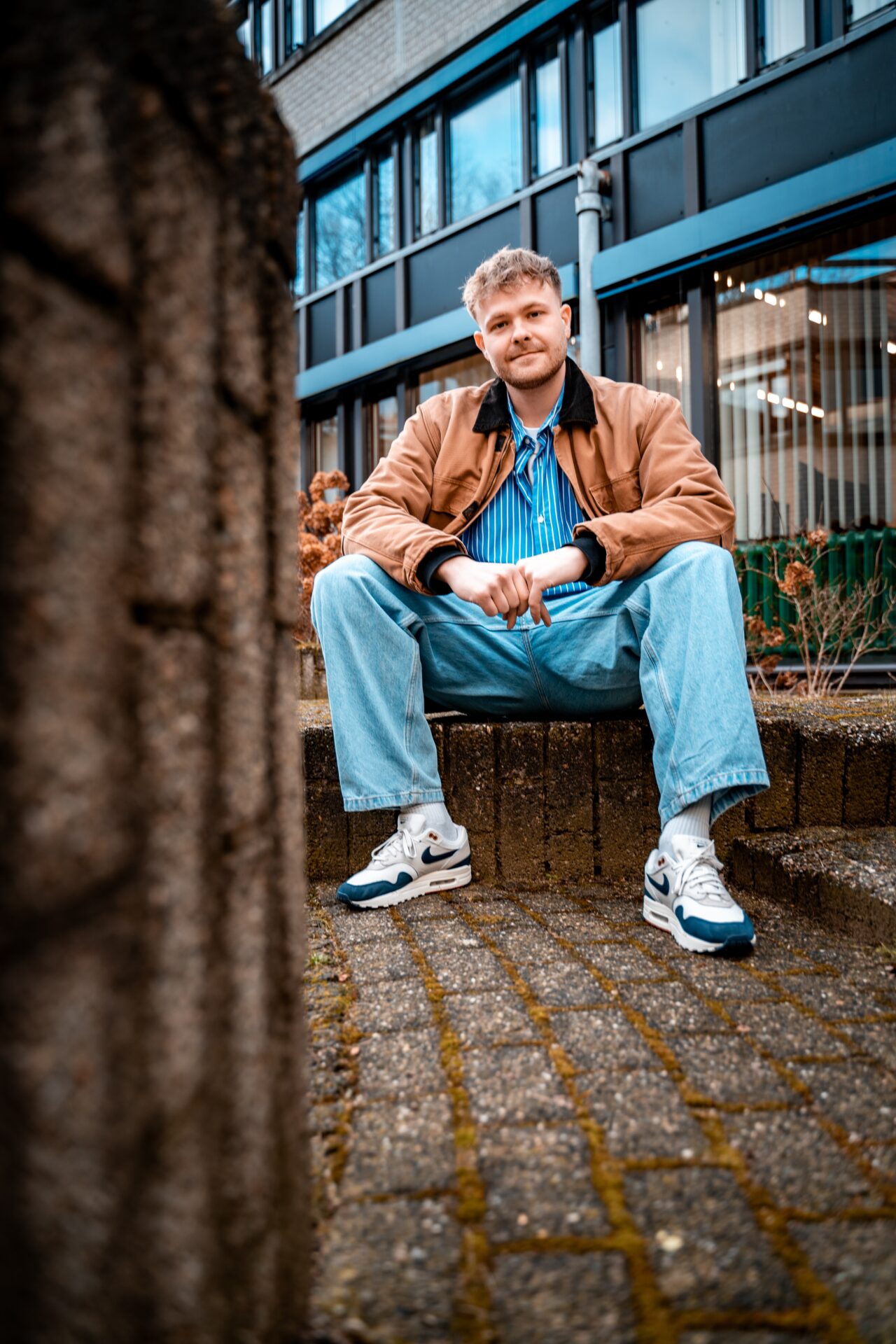Thesis Tales (4): Kjell studied the influence of colonial statues like that of J.P. Coen
-
 Kjell Schipper. Foto: Johannes Fiebig
Kjell Schipper. Foto: Johannes Fiebig
Students work on their thesis for weeks, months, sometimes years. Once completed, their work is often relegated to a dusty drawer. The Thesis Tales column is devoted to highlighting student research. In episode 4: Psychology student Kjell Schipper (25) researched the influence of colonial statues on unconscious discrimination.
What was your thesis about?
‘My research was about the influence of colonial statues on unconscious racism, specifically among white people near these symbols. The idea for this subject arose during the Black Lives Matter protests in the US. These were focused on removing statues of Confederates, which are considered racist.’
“A statue can give the impression that racism is acceptable”
‘The Netherlands also has colonial statues of figures who are considered discriminatory. In 2020, riots even broke out in Hoorn near the statue of Jan Pieterszoon Coen. As a result of this social discussion, my fellow student and I wondered whether such a statue can evoke unconscious racist feelings.’
Where did that question come from?
‘Scientific research shows that your environment affects your unconscious associations. A statue of someone who was involved in racist policies in colonial times may give the impression that racism is acceptable. After all, that person has been honoured with a statue.’
‘Unconscious associations can be measured with the Implicit Bias Test. By studying how common racist sentiments are in a particular environment, you can find out whether such feelings are triggered by that environment. In my thesis, I applied this test to people who were near both a colonial and a non-colonial statue.’
How did you go about that?
‘The social relevance of my thesis was very important to me. I therefore started reading newspapers to help me understand current issues around discrimination. The riots at the statue of J.P. Coen in 2020 made me wonder why something like that happens. After reviewing literature and establishing a theoretical framework, I formulated a hypothesis that I tested in my research. The results were significant: people showed more prejudice towards a statue with colonial roots than towards a neutral statue.’
What can our society learn from this?
‘My thesis shows that white people are more prejudiced against black people when they are standing next to such a statue. So, colonial symbols in the Netherlands affect how people judge each other. As a society, we must therefore ask: is commemorating history worth it if it contributes to inequality?’
‘Engaging with people suddenly gives your thesis a very human element’
What would you say to students who have yet to write their thesis?
‘What I found very interesting was to be theoretical first and then actually carry out the research. Engaging with people at those statues suddenly gives the analytical part of your thesis a very human element. That was cool because it made me realise that the research I was doing also has an impact on what people feel. That insight made the process a lot more enjoyable.’
‘In addition, writing your thesis is a kind of mental game with yourself. You are on your own: that gives you a lot of freedom, but it also requires discipline. If you can deal with that, you’ll be fine. Good planning helped me a lot with this, and that’s my main advice.’




